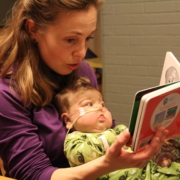ISAPP collaborates with NEC Society to help parents understand the role of probiotics in reducing the risk of necrotizing enterocolitis
By Dr. Mary Ellen Sanders, PhD, ISAPP Executive Science Officer
To date, over 50 clinical trials on probiotics and necrotizing enterocolitis have been published. Medical organizations have considered the trials completed to date and have provided guidance (ESPHGAN) and recommendations (American Gastroenterological Association) for implementing probiotics in clinical practice.
As important as the science on this issue are the perspectives from parents of babies who have suffered from NEC or are at risk of developing the disease. Such parents consistently point to the need for credible and balanced educational materials about this condition. Recently, ISAPP has been fortunate to work with the NEC Society to develop materials that will help inform parents.
See the new ISAPP infographic Probiotics and Necrotizing Enterocolitis: What Parents Should Know.
Disponible también en español. Информация также доступна на русском языке.
Also, a recent ISAPP blog Probiotics to Prevent Necrotizing Enterocolitis: Moving to Evidence-Based Use by Dr. Ravi Patel MD, a neonatologist on the NEC Society’s Scientific Advisory Council, summarizes the state of the science supporting this use, including both controlled efficacy trials and post-implementation surveys.
The NEC Society is a nonprofit organization – the only US group dedicated to NEC – with the stated mission of “building a world without necrotizing enterocolitis (NEC) through research, advocacy, and education.” They advocate for families affected by NEC by bringing together critical stakeholders to improve understanding, prevention, and treatment for NEC. Jennifer Canvasser founded the NEC Society in 2014 after her son, Micah, died from complications of NEC just before his first birthday. Micah was born at 27-week’s gestation, placing him at increased risk of NEC. Despite Micah’s risk factors and his parents asking the care team to consider offering Micah probiotics, he was not treated with probiotics. Although it is impossible to know if probiotics could have changed Micah’s course, his parents feel that more could have been done to better protect Micah from the devastation of NEC. Micah’s photo is featured in the new infographic co-created by ISAPP and the NEC Society.
“It is vital for healthcare providers to support NICU parents in understanding the protective and risk factors associated with NEC,” Canvasser shared. “Parents are the most important members of their baby’s care team. For parents to effectively engage and contribute, they need to be supported in accessing and understanding important information related to their child’s health. This new resource on probiotics and NEC will help to ensure that NICU parents are informed and feel encouraged to ask questions so they can best advocate for their child.”
The NEC Society intends to use the new infographic as a resource available to NICU parents and providers. It will be downloadable from the websites of both the NEC Society and ISAPP, and it will be shared via both social media platforms. Once in-person events are possible again, print versions will be made available. ISAPP will also work with the NEC Society’s Scientific Advisory Council to explore how we can further disseminate this resource to NICUs.
Read more about the efforts of the NEC Society here:
Head of the Herd: Jennifer Canvasser, Founder and Director, Necrotizing Enterocolitis (NEC) Society
Family Reflections: harnessing the power of families to improve NEC outcomes





